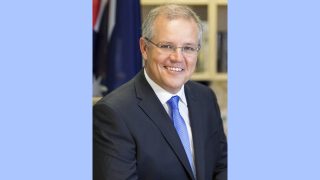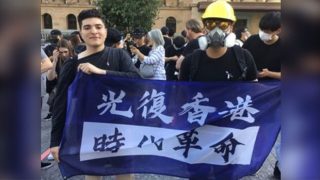(Sydney) – The Australian government should immediately end military ties with Myanmar, Australia’s foremost international human rights and development organizations jointly said today. They called on the Australian government to impose targeted sanctions on military commanders responsible for atrocities committed against ethnic Rohingya, and to press for an international mechanism to assist future prosecutions.
As Australia commences its third session as a member of the United Nations Human Rights Council, the government should step up and press for accountability for those responsible for grave international crimes in Myanmar, the Australian Council for International Development, Amnesty International, Human Rights Law Centre, and Human Rights Watch said.
The final report of the Independent International Fact-Finding Mission on Myanmar, which recommends that Myanmar’s top military generals should be investigated for genocide, crimes against humanity, and war crimes, will be submitted to the Human Rights Council for its consideration during the Council’s 39th Session, which began on September 10, 2018 in Geneva. The report is expected to be presented on September 18.
The UN report named six high-ranking military commanders, including Sr. Gen. Min Aung Hlaing, as among those responsible for “a failure to take necessary and reasonable measures to prevent and punish crimes, and a causal link between these failures and the atrocities committed.”
“Faced with such a damning report, there is no excuse for inaction,” said Elaine Pearson, Australia director at Human Rights Watch. “Australia needs to urgently act by ending ties with Myanmar’s military, imposing targeted sanctions on abusive generals, and pressing for justice in Myanmar.”
The four organizations called for Australia to publicly support a UN Security Council referral of the situation in Myanmar to the International Criminal Court, and to use its seat on the Human Rights Council to sponsor a resolution to establish an International, Impartial, and Independent Mechanism (IIIM) to preserve evidence and assist in investigations for future prosecution of those responsible for atrocity crimes in Myanmar.
“Those with blood on their hands, for the explosion of violence perpetrated by Myanmar’s security forces against Rohingya villagers across northern Rakhine State, must be held to account,” said Diana Sayed, crisis campaigns coordinator at Amnesty International Australia. “The Australian government must explore all avenues to achieve this, in particular an immediate mechanism for evidence collection and preservation for future criminal prosecutions at the International Criminal Court.”
On August 27, the UN-mandated Fact-Finding Mission issued a report that documented Myanmar security force abuses against the Rohingya population, including, but not limited to, murder, rape, and torture, and concluded that they amounted to crimes against humanity and war crimes. It also found that the systematic oppression and discrimination amounted to the crimes against humanity of persecution and possibly apartheid.
The Fact-Finding Mission report also concluded there was sufficient information to warrant prosecution of senior military officials to determine liability for the crime of genocide, and named six senior commanders. The report also detailed abuses committed by militants of the Arakan Rohingya Salvation Army (ARSA) and called for them to be held to account.
On August 29, Australian Foreign Minister Marise Payne said the government “is deeply disturbed by the conclusions of the Fact-Finding Mission.” Her statement said, “Perpetrators must be held to account. We will continue to work internationally to this end, including through our position on the Human Rights Council and at the UN General Assembly.”
While Australia ultimately supported the establishment of the Fact-Finding Mission, its recent statements on Myanmar at the Council have been weak compared with the stance taken by traditional allies such as the United Kingdom and European Union.
“Time and time again we see our government’s cruelty to refugees compromising its stance on global humanitarian emergencies,” said Daniel Webb, director of legal advocacy at the Human Rights Law Centre. Webb has been attending Human Rights Council sessions in Geneva to monitor the Australian government’s role.
Since the Myanmar military’s campaign of ethnic cleansing in Rakhine State began in August 2017, several countries and multilateral institutions – including the United States, Canada, and the EU – have imposed travel and financial sanctions on several Myanmar security force commanders, units, and individuals implicated in atrocities, the vast majority in Rakhine State.
The US, UK, and EU have all taken steps to suspend military training and cooperation with the Myanmar military. While the Australian government maintains an arms embargo on Myanmar, the Department of Defence spent approximately A$400,000 in defence cooperation with Myanmar last fiscal year covering humanitarian assistance and disaster relief, and peacekeeping and English-language training. The estimate for military cooperation with Myanmar in FY2017 is A$270,000.
“The time has come for Defence Minister Christopher Pyne to end Australia’s defence cooperation with Myanmar’s military,” said Marc Purcell, CEO of ACFID. “As a member of the UN Human Rights Council, Australia has a responsibility to send a strong signal that it has a zero-tolerance approach for gross human rights violations in our region, including the abhorrent use of sexual violence as a weapon of war.”
Source: UN
Human Rights Watch.Australia: Seek Justice for Myanmar Atrocities © 2018 by Human Rights Watch.



